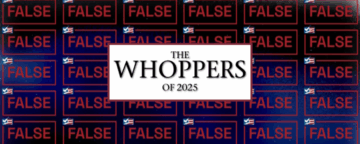 Objectives. To determine whether holding vaccine misconceptions, in the form of negative beliefs about vaccines, correlates with opposing governmental action at all levels designed to increase vaccination (e.g., removing personal belief and religious vaccine exemptions).
Objectives. To determine whether holding vaccine misconceptions, in the form of negative beliefs about vaccines, correlates with opposing governmental action at all levels designed to increase vaccination (e.g., removing personal belief and religious vaccine exemptions).
Methods. Drawing on data from a nationally representative survey of 1938 US adults, we assessed the relation between negative beliefs about vaccines and provaccination policies.
Results. Beyond sociodemographic and policy-relevant variables, such as gender and partisan affiliation, questionable negative beliefs about vaccines are the strongest predictor of opposition to policies designed to increase vaccination.
Conclusions. Negative beliefs about vaccines in the general population may thwart the passage or implementation of policies designed to increase vaccination. Implementing strategies that reduce these negative beliefs should be a priority of educators and public health officials. (Am J Public Health. Published online ahead of print August 20, 2020: e1–e3. doi:10.2105/AJPH.2020.305828)
Authors
- Author links open overlayDomiDominik Stecula
- Ozan Kuru
- Dolores Albarracín
- Kathleen Hall Jamieson


